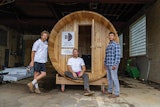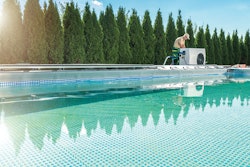
Times change, however. Even the pool industry changes, slowly and reluctantly.
Back when the pool building business first took off, most pool equipment was selected based on its initial cost and ability to get water through a filter and back into the pool. The details didn't matter much.
Now, they do.
Pool owners are more finicky about a lot of things, but the crucial detail for many of them, and certainly to society at large, is the pool's energy bill.
Some people care about the planet, and some people don't think they have to, but everybody wants to save money. Fortunately, we have the opportunity to offer them eye-popping savings on the operating costs of their pools.
While this is not exactly news, for much of the pool-owning world, it might as well be. By and large, they are still lumbering along with their high-horsepower pumps and their shocking amperage, still rather amazingly unaware that it could be so much better. So much cheaper.
Little by little the message is getting through — has been for years. Perhaps they don't realize that the energy-efficiency movement in the pool industry has matured.
When it first cropped up on the radar, a rush of new products hit the market that were supposed to save energy. Some of these were very well designed and executed, but others were just crap.
A lot of those issues have been sorted out at the manufacturer and installer levels, and we we've learned a lot over the recent years about which innovations and what overall system designs really work in the pool.
At the same time, local utilities from coast to coast have demonstrated firm and consistent support by paying millions of dollars in rebates, as have states and municipalities by making pool energy efficiency the law.
It's a big, lucrative job, converting North America's pools from sloppy energy wasters to stingy, tightly designed systems, and its going to happen. If I was actually doing the work of the industry instead of just writing about it, I'd get involved. Seems like there'd be some money in it.













































